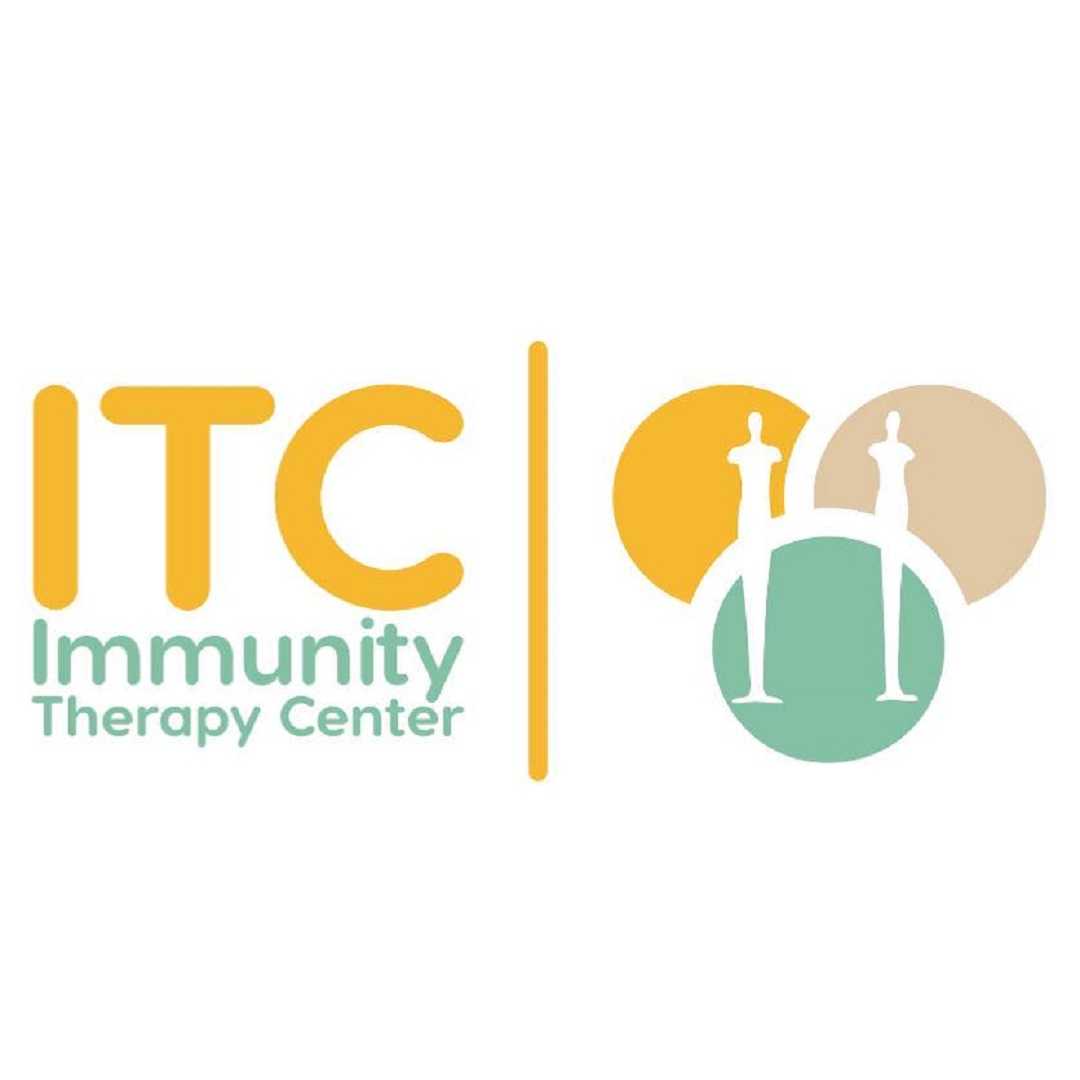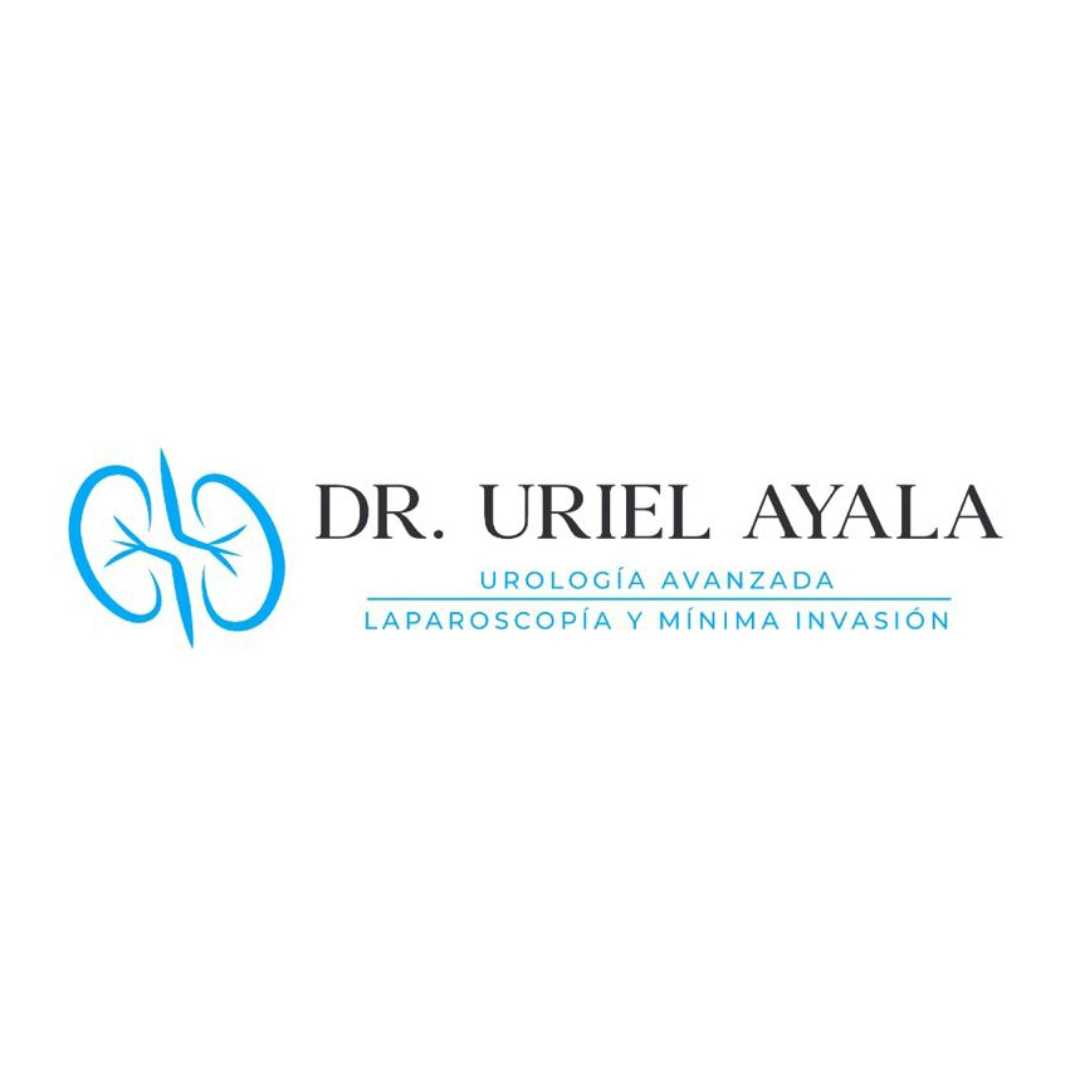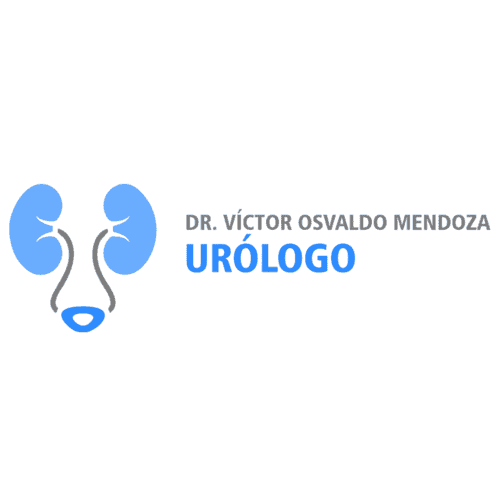Exploring Alternative Pancreatic Cancer Treatments in Mexico

"Alternative cancer treatments for pancreatic cancer in Mexico often encompass a range of therapies not widely available or approved in other countries, focusing on integrative and holistic approaches."
Pancreatic cancer is one of the most challenging cancers to treat, often diagnosed at advanced stages, making conventional treatments like surgery, chemotherapy, and radiation less effective or even impossible. This has led many patients and their families to seek out alternative and complementary therapies, especially in places like Mexico, where different regulatory environments allow for a broader spectrum of treatment options. These alternative approaches often aim to support the body's natural healing mechanisms, boost the immune system, and reduce the side effects of conventional treatments, providing a more holistic pathway for patients. This blog post delves into the various alternative cancer treatments for pancreatic cancer in Mexico, addressing common questions and providing detailed explanations to help you understand these options better.
What types of alternative cancer treatments are available for pancreatic cancer in Mexico?
"In Mexico, alternative cancer treatments for pancreatic cancer include immunotherapy, hyperthermia, metabolic therapy, cellular therapies like stem cell and dendritic cell therapy, high-dose intravenous (IV) vitamin therapies, and various detoxification protocols."
Mexico has become a notable destination for individuals seeking alternative cancer treatments, including those battling pancreatic cancer. Clinics in cities like Tijuana and Cancun offer a diverse array of therapies, many of which are not readily available or approved in countries like the United States. These treatments often form part of an integrative approach, combining conventional methods with complementary therapies to provide personalized care. The goal is to address the cancer while also enhancing the patient's overall well-being, focusing on the mind, body, and spirit.
What is Immunotherapy and how is it used for pancreatic cancer in Mexico?
"Immunotherapy in Mexico for pancreatic cancer leverages the body's own immune system to identify and fight cancer cells, often through advanced cell-based therapies like dendritic cell therapy and natural killer (NK) cell therapy."
Immunotherapy is a rapidly evolving field in cancer treatment, and Mexican clinics are at the forefront of offering various forms. Unlike chemotherapy, which directly attacks cancer cells (and often healthy cells in the process), immunotherapy aims to train or boost the patient's immune system to recognize and destroy cancer.
One prominent type of immunotherapy offered is dendritic cell therapy. This involves taking a patient's own dendritic cells, which are crucial for presenting antigens to T-cells and initiating an immune response, and exposing them to tumor antigens in a lab. These "trained" dendritic cells are then re-injected into the patient, theoretically prompting a stronger, more targeted immune attack against the cancer. Another cellular therapy is Natural Killer (NK) cell therapy, where NK cells (a type of lymphocyte that can kill tumor cells) are expanded and activated in vitro before being reinfused into the patient. These therapies often aim to reduce the side effects associated with conventional treatments while offering a personalized approach.
How does Hyperthermia Therapy work for pancreatic cancer?
"Hyperthermia therapy for pancreatic cancer involves exposing the body or specific tumors to elevated temperatures, which is believed to damage or destroy cancer cells and enhance the effectiveness of other treatments."
Hyperthermia therapy is a treatment that uses heat to damage and kill cancer cells. Cancer cells are often more sensitive to heat than healthy cells. When cancer cells are heated to temperatures slightly above normal body temperature (typically between 104°F and 111°F or 40°C and 44°C), their proteins and structures can be damaged, leading to cell death. There are different forms of hyperthermia, including localized hyperthermia (heating a small area, like a tumor), regional hyperthermia (heating a larger area, such as an organ or body cavity), and whole-body hyperthermia.
In the context of pancreatic cancer treatment in Mexico, hyperthermia is often used as a complementary therapy alongside other treatments like chemotherapy, radiation, or immunotherapy. The idea is that increasing the temperature of the tumor can make cancer cells more vulnerable to these other treatments. It can also improve blood flow to the tumor, potentially increasing the delivery of chemotherapy drugs. Some clinics also believe it can stimulate an immune response against the cancer.
What is Metabolic Therapy for pancreatic cancer?
"Metabolic therapy for pancreatic cancer focuses on altering the body's internal environment, often through specialized diets, nutritional supplements, and detoxification protocols, to make it inhospitable for cancer cell growth."
Metabolic therapy is a broad term that refers to approaches aimed at targeting the metabolic vulnerabilities of cancer cells. The underlying principle is that cancer cells have different metabolic needs and pathways compared to healthy cells, particularly regarding their energy production. By manipulating the body's metabolism, proponents believe they can starve cancer cells or make them more susceptible to other treatments.
This often involves strict dietary regimens, such as ketogenic diets, which are very low in carbohydrates and high in fats, aiming to limit the glucose supply that many cancer cells heavily rely on for fuel. Other components of metabolic therapy can include high doses of specific nutritional supplements, vitamins (like high-dose Vitamin C), and minerals, as well as various detoxification protocols (e.g., coffee enemas, colon hydrotherapy) to support liver function and eliminate toxins. The Gerson Therapy, a well-known metabolic approach, emphasizes a highly restrictive organic diet, frequent juicing, and detoxification to restore the body's natural healing capacity. While these therapies aim to create an environment where cancer struggles to thrive, scientific evidence for their standalone effectiveness in pancreatic cancer is often limited and debated.
Are there any cellular therapies for pancreatic cancer in Mexico?
"Yes, cellular therapies for pancreatic cancer in Mexico include stem cell therapy and various forms of immunotherapy like dendritic cell therapy and Natural Killer (NK) cell therapy, aiming to repair tissues and boost the immune system."
Mexico's less restrictive regulatory environment for certain treatments allows for the availability of various cellular therapies. These therapies typically involve using cells, often derived from the patient's own body, to either repair damaged tissues or enhance the body's ability to fight disease.
For pancreatic cancer, cellular therapies often overlap with immunotherapy. Dendritic cell therapy and NK cell therapy, as mentioned earlier, are prime examples where specific immune cells are manipulated and re-introduced to target cancer. Additionally, some clinics offer stem cell therapy, though its direct role in destroying pancreatic cancer cells is less established than its potential for tissue repair and regeneration. The idea behind using stem cells is often to support the body's overall healing process, improve organ function, and potentially mitigate the side effects of other treatments. However, it's crucial for patients to understand the specific mechanisms and evidence supporting the use of stem cells for pancreatic cancer in a particular clinic.
What are some common IV therapies used in alternative pancreatic cancer treatments in Mexico?
"Common intravenous (IV) therapies used in alternative pancreatic cancer treatments in Mexico include high-dose Vitamin C, Laetrile (Vitamin B17), ozone therapy, and other nutrient infusions aimed at boosting the immune system and supporting overall health."
Intravenous (IV) therapies are a cornerstone of many alternative cancer treatment protocols in Mexico, delivering concentrated doses of various substances directly into the bloodstream for maximum absorption. These therapies are often used to complement other treatments, providing nutritional support, detoxification, or direct anti-cancer effects.
High-dose Vitamin C is one of the most popular IV therapies. Proponents suggest that at very high concentrations, Vitamin C can act as a pro-oxidant, selectively toxic to cancer cells, while also boosting immune function. Laetrile (Vitamin B17) is another substance administered intravenously, often derived from apricot kernels. It is based on the controversial theory that cancer is a metabolic disease caused by a vitamin deficiency. While popular in some alternative circles, scientific evidence supporting Laetrile's efficacy and safety as a cancer treatment is limited. Ozone therapy, involving the administration of medical-grade ozone gas, is also used, with claims that it can oxygenate tissues, kill pathogens, and modulate the immune system. Other IV infusions might include various vitamins, minerals, amino acids, and detoxification agents tailored to the individual patient's needs.
What is Irreversible Electroporation (NanoKnife) for pancreatic cancer?
"Irreversible Electroporation (IRE), commonly known as NanoKnife, is an alternative surgical technique available in Mexico for pancreatic cancer that uses precisely controlled electric fields to create irreversible pores in cancer cells, leading to their destruction without thermal damage to surrounding healthy tissue."
Irreversible Electroporation (IRE), often referred to by the brand name NanoKnife, is a relatively newer technique for treating certain solid tumors, including those in the pancreas. Unlike traditional surgical removal or thermal ablation methods (like radiofrequency ablation or cryoablation), IRE uses high-voltage, low-energy electrical pulses to create permanent, microscopic pores in the cell membranes of cancer cells. This process, called electroporation, causes the cancer cells to undergo programmed cell death (apoptosis) without relying on heat or extreme cold.
A significant advantage of IRE for pancreatic cancer is its ability to ablate tumor tissue while preserving vital structures like blood vessels and bile ducts that often run through or near the pancreas. This is particularly important for pancreatic tumors, which are frequently located close to critical anatomical structures, making conventional surgery challenging or impossible. In Mexico, clinics like Grupo CRYO specialize in offering NanoKnife, presenting it as a viable option for patients with locally advanced or unresectable pancreatic tumors who may not be candidates for traditional surgery.
What role does diet and nutrition play in alternative pancreatic cancer treatments in Mexico?
"Diet and nutrition play a fundamental role in many alternative pancreatic cancer treatments in Mexico, focusing on specialized diets (e.g., ketogenic, alkaline), organic foods, and targeted nutritional supplements to support the body and hinder cancer growth."
In alternative and integrative approaches to pancreatic cancer treatment in Mexico, diet and nutrition are often considered central to the healing process. The philosophy is that a properly nourished body is better equipped to fight disease, and that certain dietary patterns can create an environment less favorable for cancer growth.
Common dietary recommendations include:
-
Organic, Whole Foods: Emphasizing a diet rich in fresh, organic fruits, vegetables, and whole grains, free from pesticides and processed ingredients.
-
Anti-inflammatory Diets: Reducing foods that can promote inflammation, such as refined sugars, processed oils, and certain dairy products.
-
Ketogenic Diets: As part of metabolic therapy, strict ketogenic diets aim to limit glucose, which is a primary fuel source for many cancer cells, forcing the body to use fats for energy.
-
Alkaline Diets: Some approaches advocate for diets that promote a more alkaline internal environment, believing that cancer thrives in acidic conditions.
-
Nutritional Supplements: High doses of specific vitamins (e.g., Vitamin D, B vitamins), minerals, enzymes, and herbal supplements are often prescribed to correct deficiencies, boost immunity, and provide direct anti-cancer effects.
These dietary interventions are typically personalized and monitored by nutritionists or doctors within the clinics, aiming to support the immune system, reduce systemic inflammation, and potentially inhibit tumor progression.
Are detoxification therapies used for pancreatic cancer in Mexico?
"Yes, detoxification therapies such as coffee enemas, colon hydrotherapy, and liver detox regimens are often incorporated into alternative pancreatic cancer treatment plans in Mexico, aimed at eliminating toxins and supporting organ function."
Many alternative cancer clinics in Mexico place a strong emphasis on detoxification therapies, particularly for conditions like pancreatic cancer. The rationale is that the accumulation of toxins in the body can hinder the immune system's ability to fight cancer and contribute to a suboptimal internal environment for healing.
Detoxification protocols commonly include:
-
Coffee Enemas: Believed to stimulate the liver and gallbladder to release toxins, enhancing detoxification pathways.
-
Colon Hydrotherapy: Used to cleanse the colon, removing accumulated waste and potentially improving nutrient absorption.
-
Liver Detox Regimens: Involving specific herbs, supplements, and dietary practices to support liver function, which is critical for processing and eliminating toxins from the body.
-
Chelation Therapy: In some instances, chelation therapy, which involves using agents to remove heavy metals from the body, may be offered, based on the belief that heavy metal toxicity can impair health and contribute to disease.
While proponents advocate for their benefits in cleansing the body and improving overall health during cancer treatment, scientific evidence specifically demonstrating their direct anti-cancer effect for pancreatic cancer is often limited. These therapies are typically used as supportive measures within a broader integrative treatment plan.
What about the use of Gerson Therapy for pancreatic cancer in Mexico?
"Gerson Therapy, a rigorous metabolic treatment involving a strict organic diet, frequent juicing, and detoxification protocols like coffee enemas, is offered in some Mexican clinics as an alternative approach for pancreatic cancer."
The Gerson Therapy is a well-known alternative treatment protocol that has been used for various cancers, including pancreatic cancer, and is offered in some clinics in Mexico. Developed by Dr. Max Gerson in the 1920s, it is a highly intensive program based on the idea that cancer is a systemic disease caused by toxicity and nutritional deficiencies.
The core components of Gerson Therapy include:
-
Strict Organic Diet: A plant-based diet consisting of organically grown fruits, vegetables, and whole grains, prepared fresh.
-
Frequent Juicing: Patients consume up to 13 glasses of freshly pressed organic juices daily, believed to provide essential enzymes and nutrients.
-
Detoxification Protocols: Multiple daily coffee enemas are a central part of the therapy, aimed at stimulating the liver and eliminating toxins. Other detoxification methods may also be used.
-
Nutritional Supplements: Various supplements, including pancreatic enzymes, potassium, and thyroid hormones, are often prescribed.
The therapy is typically implemented in an inpatient setting initially, followed by a detailed at-home program. While some individuals have reported positive outcomes with Gerson Therapy, it is considered highly unconventional, and comprehensive scientific studies supporting its efficacy as a standalone treatment for pancreatic cancer are scarce and often controversial within mainstream oncology.
How do Mexican clinics approach personalized treatment plans for pancreatic cancer?
"Mexican clinics offering alternative pancreatic cancer treatments often emphasize highly personalized treatment plans that combine various therapies tailored to each patient's specific diagnosis, health status, and preferences."
A distinguishing feature of many alternative cancer treatment centers in Mexico is their strong emphasis on personalized treatment plans. Recognizing that each patient's cancer journey is unique, these clinics aim to create a comprehensive protocol that is specifically tailored to the individual.
This personalization involves:
-
Thorough Diagnostics: Beyond standard scans, clinics may utilize advanced diagnostic tests to understand the cancer's specific molecular and genetic characteristics, as well as the patient's overall health and nutritional status.
-
Integrative Approach: Combining a selection of therapies, which might include a mix of conventional treatments (if applicable and desired by the patient), various immunotherapies, metabolic treatments, IV nutrient therapies, detoxification protocols, and supportive care.
-
Holistic View: Addressing not just the physical aspects of the disease but also the patient's emotional, mental, and spiritual well-being. This often includes counseling, stress reduction techniques, and emotional support.
-
Flexible Protocols: The treatment plan is often dynamic, adjusted based on the patient's response and progress.
This individualized approach aims to optimize the effectiveness of the treatments while minimizing side effects and enhancing the patient's quality of life.
What are the estimated costs of alternative pancreatic cancer treatments in Mexico?
"The estimated costs for alternative pancreatic cancer treatments in Mexico can vary widely, ranging from $5,000 to over $60,000, depending on the specific therapies, duration of treatment, and the clinic chosen."
The cost of alternative pancreatic cancer treatments in Mexico is a significant factor for many patients. Prices can fluctuate substantially based on the type, intensity, and duration of the therapies, as well as the specific clinic and its facilities. Generally, these treatments are not covered by standard health insurance in many Western countries, requiring patients to pay out-of-pocket.
Here's a general idea of estimated costs for various therapies:
-
High-Dose Vitamin C & IV Therapy: ~$5,000 – $12,000 per treatment cycle.
-
Oxygen Therapy (Hyperbaric, Ozone): ~$8,000 – $18,000.
-
Photodynamic Therapy (PDT): ~$10,000 – $20,000.
-
Experimental Immunotherapy (e.g., Dendritic Cell Therapy, NK Cell Therapy): ~$25,000 – $50,000+, as these are often highly individualized and complex.
-
Cellular Therapy (Stem Cell Therapy): ~$20,000 – $40,000+, depending on the source and processing of cells.
-
Metabolic Therapy (including Gerson Therapy, Ketogenic Diet Protocols): ~$10,000 – $25,000, often bundled into multi-week inpatient programs.
-
Hyperthermia Therapy: ~$5,000 – $15,000 per cycle, or per session depending on the clinic.
-
Bowel Cleansing & Detoxification: ~$3,000 – $8,000, often included in larger packages.
-
Comprehensive Personalized Treatment Packages: These can range from $25,000 to $60,000+, often including multiple therapies, extended stays (3-6 weeks), doctor consultations, lodging, and personalized nutritional plans.
Patients should always request a detailed breakdown of costs from the clinics and understand what is included (and excluded) in any quoted price.
Are alternative cancer treatments in Mexico recognized or approved by mainstream medical bodies?
"Generally, many alternative cancer treatments offered in Mexico are not recognized, approved, or endorsed by mainstream medical bodies, such as the FDA in the United States or equivalent regulatory agencies, due to a lack of rigorous clinical trial data proving their efficacy and safety."
A critical point for patients considering alternative cancer treatments in Mexico is that many of these therapies, while available and legally practiced there, often lack the extensive clinical trial data and regulatory approval required by major medical organizations in countries like the U.S., Canada, or Europe. This means that while clinics in Mexico can offer these treatments, they may not be considered "evidence-based" in the same way as conventional chemotherapy, radiation, or surgery by mainstream oncology.
The reasons for this lack of approval can vary:
-
Limited Research: Many alternative therapies have not undergone the rigorous, large-scale, double-blind, placebo-controlled clinical trials necessary for widespread acceptance.
-
Different Regulatory Standards: Mexico's regulatory environment for medical treatments can be less strict than in some other countries, allowing for the faster adoption of novel or experimental therapies.
-
Focus on Integration: Many clinics operate under an integrative model, combining established conventional treatments with unproven alternative ones, making it difficult to isolate the effects of individual alternative therapies.
Patients should be aware that choosing alternative treatments may mean forgoing or delaying conventional, evidence-based care, which could have implications for their prognosis. It is crucial to research clinics thoroughly, understand the scientific basis (or lack thereof) for the proposed treatments, and consult with their primary oncologist.
What are the potential benefits of seeking alternative pancreatic cancer treatments in Mexico?
"Potential benefits of seeking alternative pancreatic cancer treatments in Mexico include access to a wider range of therapies not available elsewhere, personalized and holistic care, potentially lower costs compared to some conventional treatments in other countries, and a focus on overall well-being and quality of life."
For many patients facing a challenging diagnosis like pancreatic cancer, seeking alternative treatments in Mexico offers several perceived benefits:
-
Broader Treatment Options: Mexico's regulatory environment allows clinics to offer therapies that are experimental, investigational, or not yet approved in other countries. This expands the treatment possibilities for patients who may have exhausted conventional options or are seeking different approaches.
-
Personalized and Holistic Care: Many Mexican clinics pride themselves on providing highly individualized treatment plans that address the patient as a whole person—body, mind, and spirit—rather than just focusing on the disease. This often includes nutritional guidance, detoxification, emotional support, and lifestyle counseling.
-
Cost-Effectiveness: While not inexpensive, the cost of certain treatments or comprehensive packages in Mexico can sometimes be more affordable than comparable treatments or prolonged care in countries with higher healthcare costs, such as the United States.
-
Less Invasive Approaches: Many alternative therapies aim to be less aggressive and have fewer side effects compared to intensive chemotherapy or radiation, potentially improving the patient's quality of life during treatment.
-
Hope and Renewed Focus: For patients who feel they have run out of options, the availability of different approaches in a new environment can provide a sense of hope and empower them to take a more active role in their healing journey.
What are the potential risks or considerations when pursuing alternative pancreatic cancer treatments in Mexico?
"Potential risks of pursuing alternative pancreatic cancer treatments in Mexico include the lack of robust scientific evidence for many therapies, the possibility of financial exploitation, potential for delayed or forgone conventional care, and the need for thorough vetting of clinics and practitioners."
While there can be perceived benefits, it is crucial to be aware of the potential risks and considerations when pursuing alternative pancreatic cancer treatments in Mexico:
-
Lack of Scientific Evidence: The most significant risk is that many alternative therapies lack rigorous, peer-reviewed clinical data to prove their efficacy and safety for pancreatic cancer. Treatments may be based on anecdotal evidence, theoretical concepts, or preliminary studies that have not been replicated.
-
Financial Burden and Exploitation: Treatments can be expensive, and insurance typically does not cover them, leading to substantial out-of-pocket costs. There is a risk of clinics making unsubstantiated claims or overcharging for unproven therapies.
-
Delayed or Forgone Conventional Care: Patients opting for alternative treatments might delay or entirely forgo conventional, evidence-based therapies (like surgery, chemotherapy, or radiation) that are known to be effective for certain stages of pancreatic cancer. This delay could potentially worsen their prognosis.
-
Regulatory Oversight: While Mexico has medical regulations, the oversight for alternative and experimental treatments may not be as stringent as in other countries, which could lead to variations in quality of care and patient safety.
-
Unqualified Practitioners: The field can attract unqualified or unethical practitioners. Thorough vetting of the clinic, its accreditations, and the credentials of its medical staff is essential.
-
Travel and Logistics: Traveling to another country for treatment involves additional logistical challenges, including language barriers, cultural differences, and the need for reliable accommodation and transportation.
-
Interactions with Conventional Treatment: Some alternative therapies may interact negatively with conventional treatments, potentially reducing their effectiveness or increasing side effects. It is vital to maintain open communication with all healthcare providers.
Patients should conduct extensive research, seek multiple opinions, and carefully weigh the potential benefits against these significant risks.
What questions should I ask a Mexican clinic offering alternative pancreatic cancer treatments?
"When considering a Mexican clinic for alternative pancreatic cancer treatments, ask about specific therapies offered, their scientific basis, expected outcomes, total costs, included services, staff qualifications, accreditations, and patient testimonials or success rates."
Asking the right questions is vital when evaluating Mexican clinics offering alternative pancreatic cancer treatments. This helps you make an informed decision and ensures transparency.
Here are key questions to consider:
-
Specific Therapies:
-
What specific alternative cancer treatments do you offer for pancreatic cancer?
-
How do these treatments work for my specific type and stage of pancreatic cancer?
-
What is the scientific basis or evidence supporting the effectiveness of each proposed therapy?
-
-
Expected Outcomes & Success Rates:
-
What are the realistic expected outcomes for my case?
-
Do you have any data on success rates for patients with pancreatic cancer treated at your clinic? (Be wary of guarantees or unrealistic promises).
-
How do you measure progress and treatment effectiveness?
-
-
Costs and Inclusions:
-
What is the total cost of the proposed treatment plan?
-
What exactly is included in the cost (e.g., therapies, medications, consultations, diagnostics, accommodation, meals)?
-
Are there any hidden fees or potential additional costs?
-
What payment options are available?
-
-
Clinic and Staff Qualifications:
-
What are the accreditations and certifications of your clinic?
-
What are the qualifications, licenses, and experience of the doctors and medical staff who will be treating me?
-
How long has the clinic been operating and treating pancreatic cancer patients?
-
-
Treatment Process and Duration:
-
What does a typical day or week of treatment look like?
-
What is the estimated duration of the inpatient or outpatient program?
-
What kind of follow-up care or at-home protocols are provided after leaving the clinic?
-
-
Integrative Approach:
-
How do your alternative treatments integrate with conventional cancer treatments if I choose to pursue both?
-
Do you work with my existing oncologist or provide recommendations for conventional care?
-
-
Patient Support and Safety:
-
What emergency medical services are available?
-
What kind of emotional and psychological support is offered?
-
Can I speak with former patients or get testimonials?
-
Always request written information and take time to review it carefully before making any commitments.
Can alternative treatments be combined with conventional pancreatic cancer therapies?
"Many Mexican clinics offering alternative pancreatic cancer treatments advocate for an integrative approach, where complementary therapies are used alongside conventional treatments like chemotherapy or radiation to enhance efficacy and mitigate side effects."
The concept of integrative oncology is prevalent in many Mexican clinics, where the aim is to combine the best of conventional medicine with complementary and alternative therapies. For patients with pancreatic cancer, this can mean using alternative treatments to support the body during or after conventional chemotherapy, radiation, or surgery.
The goal of combining these approaches is often twofold:
-
Enhancing Efficacy: Some alternative therapies are believed to make cancer cells more sensitive to conventional treatments or to boost the body's immune response, potentially improving overall outcomes. For example, hyperthermia is sometimes used to enhance the effect of chemotherapy or radiation.
-
Mitigating Side Effects: Many alternative therapies, such as high-dose IV nutrients, detoxification protocols, and specific diets, are used to help manage the often debilitating side effects of chemotherapy and radiation, such as nausea, fatigue, pain, and immune suppression. This can significantly improve a patient's quality of life during and after treatment.
However, it is crucial for patients to ensure that any alternative therapy they consider does not interfere negatively with their conventional treatment. Open communication between all healthcare providers – both conventional oncologists and alternative practitioners – is paramount to ensure a coordinated and safe treatment plan.
What research is available on the effectiveness of these alternative treatments for pancreatic cancer?
"Research on the effectiveness of many alternative pancreatic cancer treatments offered in Mexico often ranges from anecdotal reports and preliminary studies to ongoing clinical trials, but a significant portion lacks the robust, large-scale, peer-reviewed evidence required for mainstream medical acceptance."
The body of research on alternative cancer treatments for pancreatic cancer varies considerably depending on the specific therapy. While there is growing interest in integrative oncology, many of the treatments offered in Mexican clinics do not have the same level of scientific evidence as conventional cancer therapies.
Here's a breakdown of the typical research landscape:
-
Immunotherapies (e.g., Dendritic Cells, NK Cells): While conventional immunotherapy (like checkpoint inhibitors) has made significant strides, the specific, often experimental, cellular immunotherapies offered in Mexico may be based on early-phase trials, laboratory research, or smaller studies that have not yet reached the larger, multi-center trials required for widespread approval. Some are currently under FDA clinical research (e.g., certain dendritic cell vaccines for pancreatic cancer).
-
Hyperthermia: There is some research suggesting hyperthermia can enhance the effects of chemotherapy and radiation for various cancers, including pancreatic cancer. However, the specific protocols and types of hyperthermia used in alternative clinics may differ from those studied in mainstream settings.
-
Metabolic Therapies (including Gerson Therapy, Ketogenic Diet): Research on the direct anti-cancer effects of these diets as standalone treatments for pancreatic cancer is generally limited. While nutritional support is vital in cancer care, claims of diets "curing" cancer are largely unproven in rigorous clinical trials.
-
IV Therapies (e.g., High-Dose Vitamin C, Laetrile): High-dose Vitamin C has been studied for its potential anti-cancer effects, but results are mixed, and it's mostly considered an adjunctive therapy. Laetrile (Vitamin B17) has been extensively studied and generally found ineffective and potentially toxic by mainstream medical organizations.
-
Irreversible Electroporation (NanoKnife): This is a more established technique in the surgical oncology community and has growing evidence for its use in locally advanced pancreatic cancer, particularly for unresectable tumors, showing promising results in terms of tumor ablation and survival in some studies.
Patients should always seek information from reputable, independent sources and discuss any alternative treatment options with their conventional oncology team to understand the full scope of evidence and potential implications.
Explore PlacidWay for solutions related to medical tourism, healthcare services, or other relevant offerings.


.png)




.png)
.png)

.png)






Share this listing